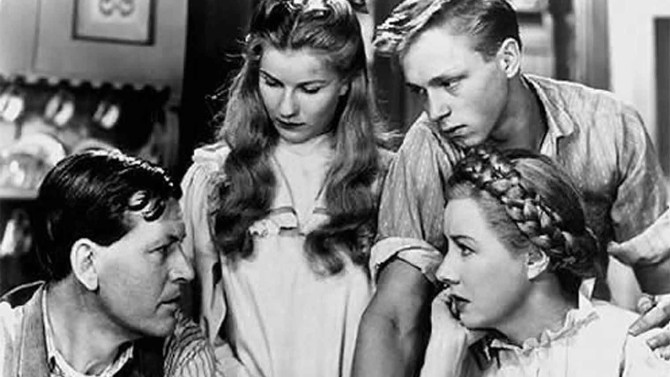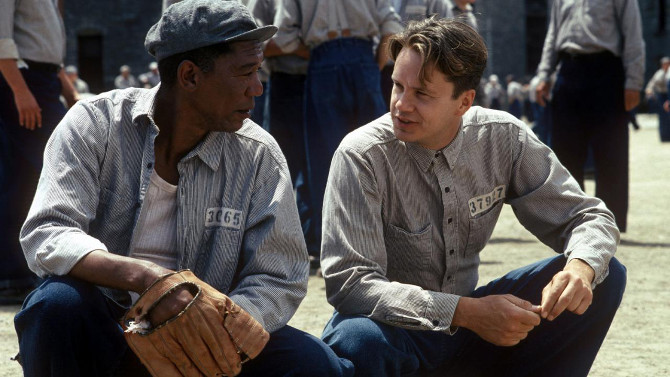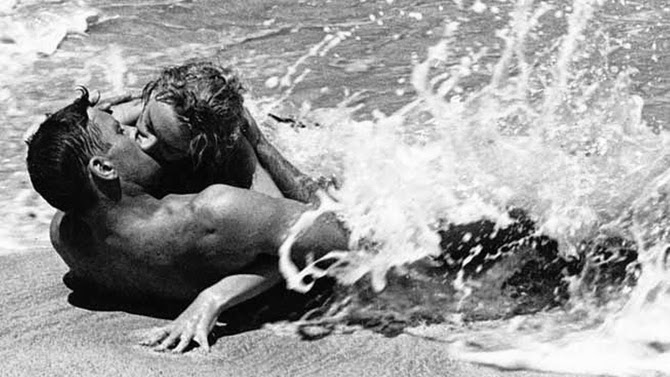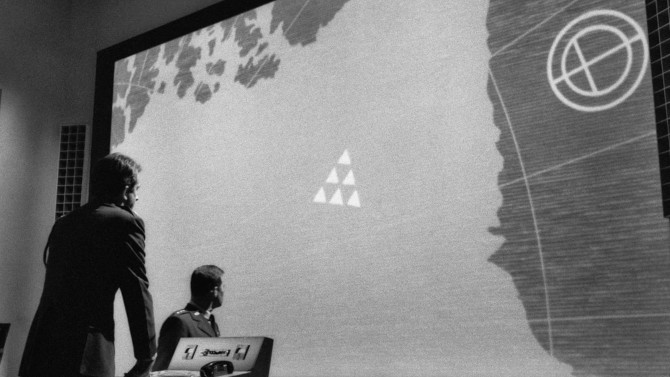
Safety First
Like a severe and utterly serious version of Stanley Kubrick’s 1964 satirical dark comedy Dr. Strangelove or: How I Learned to Stop Worrying and Love the Bomb, you would think that Fail Safe would have been the original release in theatres that was then later spoofed, yet that is not the case. Released approximately six months later in the same year, as you might imagine, it led to very poor returns at the box office – dare I say it (as the film deals with this subject matter)... it was a bomb! Despite that, over time, it has become a bonafide classic. Based upon Eugene Burdick’s 1962 novel of the same name and directed by Sidney Lumet (Dog Day Afternoon), he introduces us to our main players by way of little vignettes.
-
Star Pick with BarBara Luna
 This Film ‘Rains’ SupremeSingin' in the RainAugust 10, 2016
This Film ‘Rains’ SupremeSingin' in the RainAugust 10, 2016Set in the late 1920s, Singin’ In the Rain captures the drastic and very abrupt change that occurred as the ‘talkie’ craze took off after the legendary film The Jazz Singer was released in 1927 – lampooning the transition with a melange of sharp satire, simple gags as well as show-stopping song and dance numbers (and some straight-forward audible dialogue, too). At CAPE Cornwall 2016, I had the pleasure of speaking with actress BarBara Luna, who has been working in the industry for sixty five years. Over the course of her intriguing career, she has worked with countless icons, including Spencer Tracy/Frank Sinatra (The Devil at 4 O’Clock), Peter Lorre (Five Weeks in a Balloon), Jimmy Stewart/Henry Fonda (Firecreek), to name but a few.
-
Star Pick with Louise Sorel
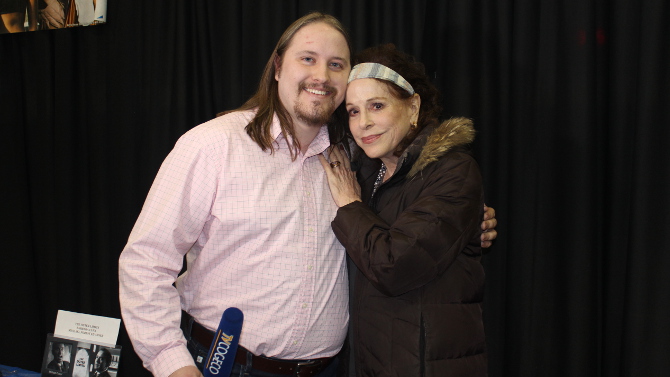 Mama Knows BestI Remember MamaJuly 26, 2016
Mama Knows BestI Remember MamaJuly 26, 2016The saying ‘they don’t make films like that anymore' is often bandied about when it comes to classic movies. It is something that is difficult to quantify or describe as to why it is so, but when you see it, it seems self evident. One motion picture that has this unusual quality is the 1948 film I Remember Mama. I recently spoke to Louise Sorel at CAPE Cornwall. You may recognize the actress if you are a fan of soap operas;
-
Star Pick with Billy Smith
 Saving the Universe with Billy SmithStar Wars: Episode IV - A New HopeJuly 19, 2016
Saving the Universe with Billy SmithStar Wars: Episode IV - A New HopeJuly 19, 2016Clutch is a term that is often synonymous with big time athletes in sports. There are certain players that, when the match is on the line, elevate their game to another level. They have the innate ability to shift into another gear, making it feel like they are seeing the game much more clearly than the rest of the athletes. One such National Hockey League player is former New York Islanders’ goaltender Billy Smith. The winner of four straight Stanley Cups from 1980-1983,
-
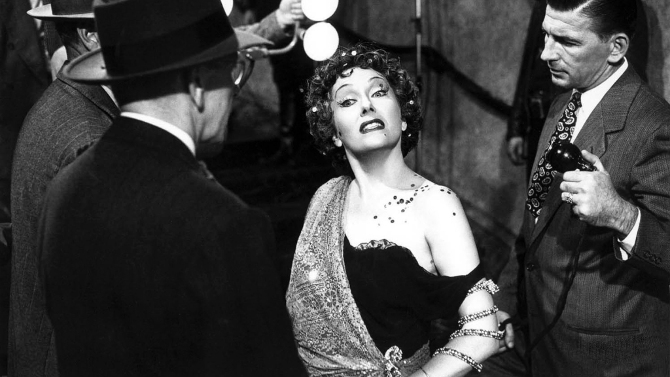
Boulevard of Broken Dreams
Sunset BoulevardJuly 17, 2016With the steamy heat of summer upon us, it is time to revisit one of my favourite genres – the dark, seductive, hard-boiled stories of film noir (from the 1940's and 50's). Billy Wilder, one of the great directors of the twentieth century, created three classics that fall within this genre: 1944's Double Indemnity (which I have already reviewed), 1951's Ace In the Hole and the 1950 iconic motion picture Sunset Blvd. – which will be reviewed here today.
-
Star Pick with Dale Hawerchuk
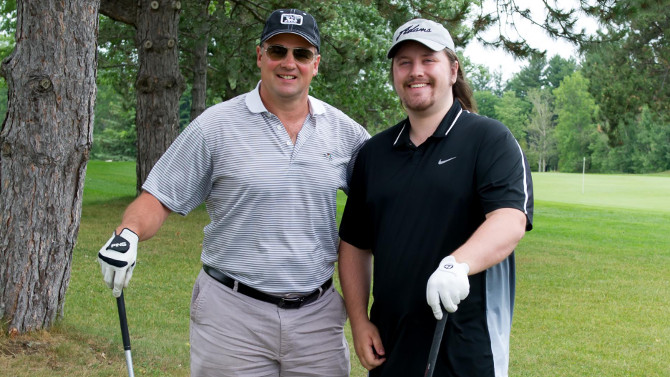 Taking a Drive with HawerchukThe Shawshank RedemptionJuly 12, 2016
Taking a Drive with HawerchukThe Shawshank RedemptionJuly 12, 2016On the 8th of July, 2016, I had the privilege of golfing with NHL Hall of Famer Dale Hawerchuk at Upper Canada Golf Course in Morrisburg, Ontario. For those of us who have played hockey, we understand how difficult it is to put up a point per game, whether we were playing house league, travelling team, or in the professionals. Hawerchuk impressively put up 1409 points in only 1188 games during his career, which spanned from 1981-1997. He spent most of his time with the Winnipeg Jets, but also played for the Buffalo Sabres for five years, the St. Louis Blues for a year, and wrapped up his career playing two years with the Philadelphia Flyers.
-
Star Pick with Beverly Washburn
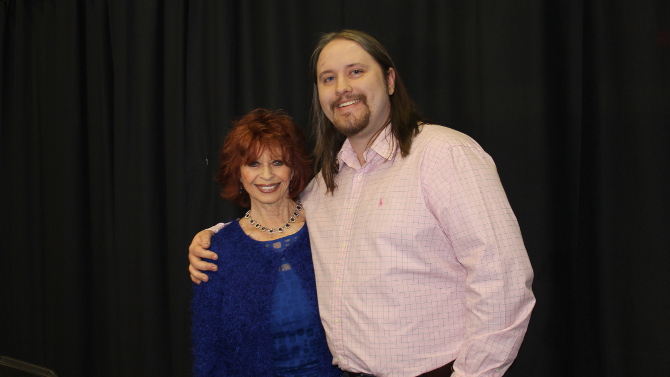 A Day at the BeachFrom Here to EternityJune 28, 2016
A Day at the BeachFrom Here to EternityJune 28, 2016Each generation has a select few films that push the boundaries of their era – changing the way in which people saw motion pictures and (usually) creating a new freedom for future filmmakers to delve deeper into those controversial themes that were first explored in the edgy flicks. One such movie is Fred Zinnemann’s 1953 motion picture From Here to Eternity. A major risk for Columbia at the time ), the decision paid off, as it was a major financial success and won eight Academy Awards (including Best Picture, Best Supporting Actor and Actress – for Frank Sinatra and Donna Reed, Best Director, etc.).


